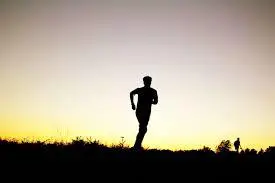Joggers life was about to change
When Todd Tewksbury set out for his routine daily jog back in August of 2014, everything about it felt normal
from lacing up his cross-trainers to the feel of his old t-shirt, nothing stood out as odd to him as he said goodbye to his
mother and set out along his route. He couldn’t have known that in just a few minutes and a few miles, his life was
about to change forever and if not for some quick thinking onlookers, he may have lost it entirely. Of course, how could
he have known? There was no reason to consider that as he approached JFK by the art museum on his typical path, he
would suffer  from cardiac arrest and fall to his knees. After all, Todd, a 27-year-old athlete, had no reason to consider
from cardiac arrest and fall to his knees. After all, Todd, a 27-year-old athlete, had no reason to consider
something like heart failure could even happen to him, let alone that it would find himself suddenly slumped on all fours
that summer day along the waterfront.
According to the Mayo Clinic, “Cardiac Arrest is the unexpected loss of heart function, breathing and
consciousness. Sudden cardiac arrest usually results from an electrical disturbance in your heart that disrupts its
pumping action, stopping blood flow to the rest of your body.” Although there is potential to survive an attack it
becomes incredibly minimal if emergency medical treatment is not performed immediately. Because the heart is no
longer pumping blood and vital organs are deprived of oxygen, it is imperative that the individual suffering the attack
receives CPR or treatment with a defibrillator within seconds. Although only 11% of people survive an attack nationally,
that number could greatly improve to 38% if more people to knew CPR. Lucky for Tewksbury, he fell into the 11%
survival rate thanks to a group of strangers who also had a mind to enjoy the Schuylkill River Trail that day.
Dr. Aaron Mendelson and his wife were a few yards away when they rushed to Todd’s side upon seeing him fall to
the ground, they assumed he was having a seizure given that he was a fairly young and athletic man. Once they reached
him however, it became evident that he did not have a pulse and they knew it had to be a heart issue. Arron, a resident
at the Hospital of the University of Pennsylvania, and his wife, an ER doctor were very well trained in the emergency
care of Cardiac Arrest and began to administer CPR in attempt to provide Tewksbury’s vital organs the oxygen they
desperately needed. Meanwhile, another concerned individual, part of the small crowd that had gathered around, used
Todd’s phone to call his mother Louis, alerting her to what was happening to her son. As Louis and her family rushed to
the hospital to meet Todd upon his arrival, the group with him on the waterfront administered CPR for a total of 11
minutes at which point two women brought over a defibrillator from a nearby recreational center, delivering a lifesaving
dose of electric current in order to start his heart back up.
Todd is alive and well today and he along with his family are incredibly grateful to the Mendelson’s and others that
stepped in and took action that day. It was incredibly lucky that there were trained medical professionals within the
general vicinity of where the incident occurred, however, Dr. Mendelson says that anyone could have done what he did
to save Todd’s life. The doctors treating him in the days following the attack, noted that CRP was the main factor in his
survival and his ability to walk out of the hospital, without it Todd surely would have died. No small detail to Tewksbury
who noted he would be learning CRP and educating himself in emergency care in the hope that should he ever find
himself on the other end of this situation, he would be able to pay it forward and save another’s life.



